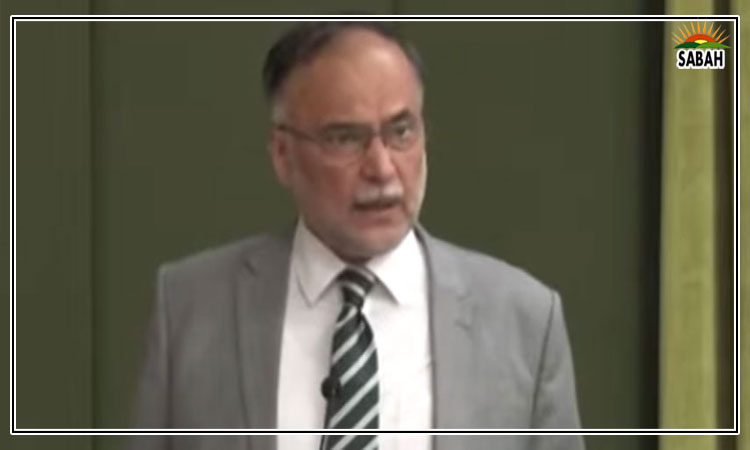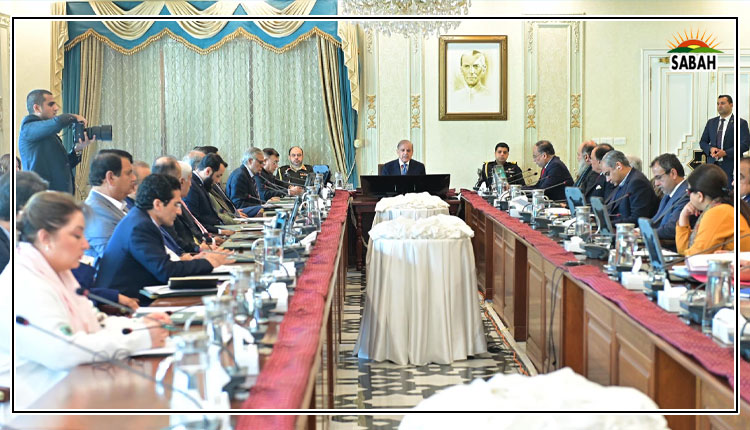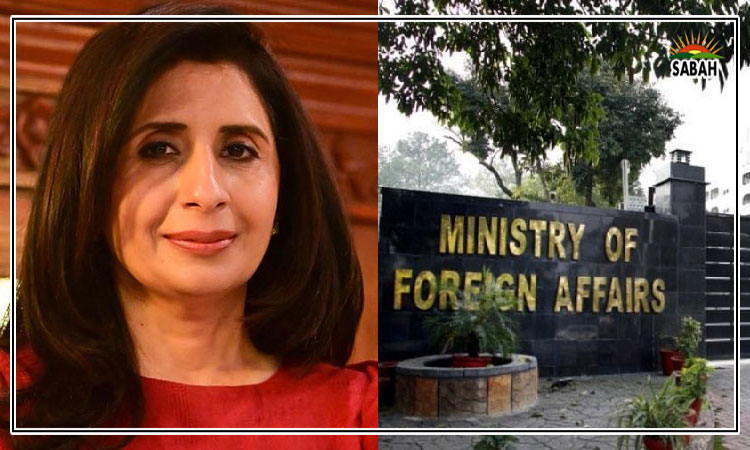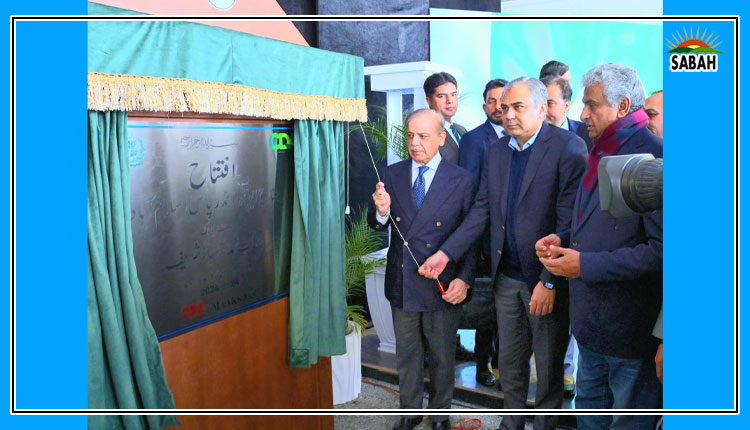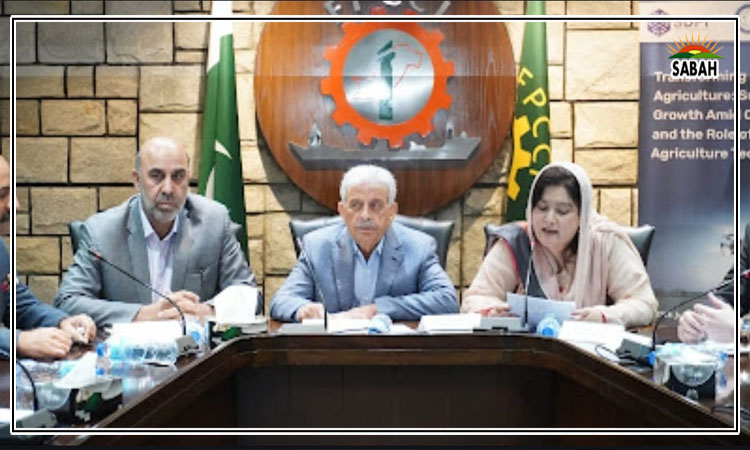Rana Tanveer agrees for expert taskforce on agriculture to boost technology rollout at roundtable jointly organized by SDPI & FPCCI
ISLAMABAD, July 30 (SABAH): Minister for National Food Security and Research, Rana Tanveer Hussain agreed to form a taskforce comprising experts and stakeholders on agriculture to boost technology rollout for better crop yield and productivity.
The Minister was chief guest at the roundtable jointly organised by the Sustainable Development Policy Institute (SDPI) and the Federation of the Chambers of Commerce and Industry (FPCCI) here titled Transforming Pakistan’s Agriculture: Sustianble Growth Amid Challenges and the Role of Precision Agriculture Technologies.
The Minister underscored the importance of agriculture as the backbone of the country’s economy that demanded moderation through cutting technological solutions and innovations helping in improving its average productivity. He urged the SDPI and FPCCI to submit policy proposals to the Ministry of National Food Security and Research to initiate a coordinated and focused intervention to train, equip and mobilise farmer community to embrace the transformational change.
Rana Tanveer mentioned that it is the agriculture sector that will take the country’s economy forward and help in economic revival. “A year back the GDP had plummeted to 2% but it was the agriculture sector that supported the economy and helped in maintaining the national growth rate and GDP ratio,” he added.
The Minister mentioned that the disconnect between the experts and local farmers that needed to be abridged to achieve the goal of developing agriculture on modern lines.
He informed that agriculture sector is among the top priorities of the Prime Minister who was directing to support maximum youth learning in the sector to get hands on experience on modern agri-techs in China through fully funded training programmes of the government.
Executive Director, SDPI, Dr Abid Qaiyum Suleri in his special remarks said climate change impacts mitigation and adaptation in agriculture sector is only possible through precision agriculture technologies.
He mentioned that the National Aerospace Science and Technology Park (NASTP) is a most modern facility developing advanced technological solutions particularly in the realm of precision agriculture that will help the farmers in revolutionizing their day-to-day agricultural practices and techniques.
He added that the FPCCI has plethora of investment opportunities in the realm of agriculture storage, machinery, equipment, drones, technology, agriculture cloud, and digitisation of the agricultural market. Dr Suleri mentioned that the future is of data and artificial intelligence (AI) as the latter and climate change are certain in the times to come.
Chairman FPCCI Central Standing Committee on Agriculture, Chaudhry Ahmad Jawad in his opening remarks said that after the start of Green Pakistan Programme, agriculture is the most debated sector of the country’s economy which cannot sustain without it.He said that the FPCCI had the sentiments that agriculture sector lacked the institutional patronage of the government to ensure its development on modern lines.
Ahmed Jawad said lack of access to agricultural credit was a major bottleneck for the small and medium scale farmers to modernize their agricultural practices. He mentioned that the NASTP and other institutions were working in silos on precision agriculture that needs to ensure cohesion and coordination among themselves and the relevant stakeholders.
Advisor to President FPCCI, Dr Afshan Malik said agriculture sector was crucial for the country’s economic prosperity whereas the government should improve skills of the farmers, and enable financing and training opportunities to build up their capacities on modern lines.
Earlier, Research Fellow, SDPI, Dr Kashif Majeed Salik presented a detailed presentation at the Blueprint Study of the SDPI on agriculture sector transformation.
He highlighted that the study was a collaborative effort conducted with the assistance of the FPCCI whereas the seminar was intended to address the needs for technological transformation and its implementation through collaborations.
The country’s agriculture sector is compounded with multiple issues including declining total factor productivity ratio of inputs and outputs, agriculture labour shifts, shift in land use patterns, lack of access to agricultural credit, climate change and GHG emissions adverse impacts that demanded efficient and timely use of advanced agricultural technologies to conserve the sector, he added



